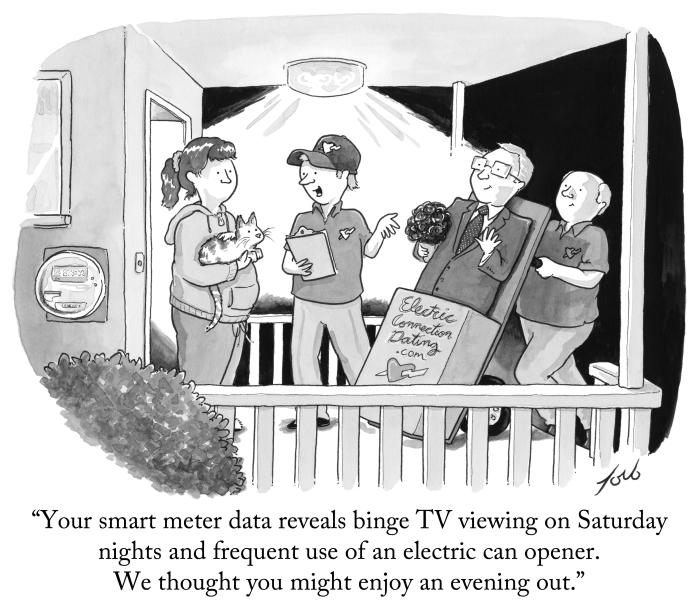Naperville Smart Meter Awareness v. Naperville (US Smart Meters)
Smart meters can generate invasive data on households.
On 28 February 2017, Privacy International and the Electronic Frontier Foundation filed an amicus brief in the case of Naperville Smart Meter Awareness v. City of Naperville before the United States Court of Appeals for the Seventh Circuit. The case, brought by a group of citizens called Naperville Smart Meter Awareness, challenges Naperville’s policy of requiring every home to have a smart meter.
Our brief, in support of Naperville Smart Meter Awareness, argues that usage data from smart electricity meters differs quantitatively and qualitatively from analog electricity meters. While analog meters provide a single monthly read of cumulative household energy use (a single data point), smart meters typically collect data in 5, 15, 30 or 60-minute intervals. This level of granularity provides detailed information regarding how much energy is actually being used within a house at any given time. Thus, even in aggregate, raw form, smart meter data reveals intimate information regarding a person or family’s in-home activities.
Patterns generated by smart meter data can be used to infer how many individuals reside in a home as well as their activities, habits, and rhythms of movement, including when they leave their home and when they go to sleep. Smart meter data can even reveal which appliances are functioning at a given time, allowing one to infer, for example, when residents consume meals, take showers, watch TV, and use exercise equipment.
PI and EFF argue that an Illinois District Court’s decision that there is no reasonable expectation of privacy in aggregate electrical usage data, regardless of whether the data is collected by a smart meter or analog meter, is flawed and that the Court’s decision should be reversed.
